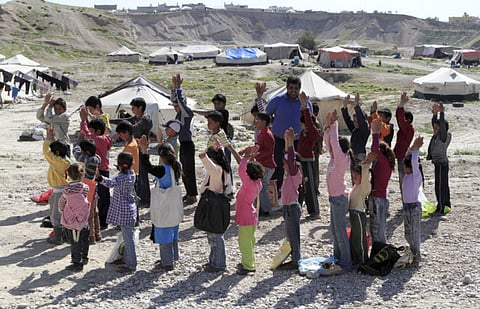Amid viral outbreak let's not forget refugees
The most vulnerable will be overwhelmed and simply unable to cope with coronavirus

For the last six weeks or so, our lives have become dominated by coronavirus. Our newscycles are consumed by the latest figures: where it has spread, what is being closed, who has died? In much of Europe — and across the world, Covid-19 is the only topic of conversation, the only thing that matters as all else pales in comparison.
On news channels, on news sites, on social media, in newspapers and on our airwaves, the discourse over coronavirus dominates. It is a very real reminder of how our normality can suddenly change, can be swept aside by factors beyond our control and largely beyond our comprehension. Yet, in truth, we are very lucky — privileged almost.
It is not just in Syria or Lebanon, Turkey, Jordan or Iraq. There are millions more at risk in Bangladesh where Rohingya refugees has massed, in the Sehel too where conflict has taken hold
For the better part of this past decade, in the villages and towns that once made up an orderly Syria, normality for millions is the bullet and the bomb. Those impacted don’t know whether there will be a tomorrow, much less a next week or next month.
And because of this despair, millions are now living in cramped and crowded conditions in refugee camps (official and otherwise) simply surviving. And these millions have been largely forgotten by us. We have grown complacent to their plight, unmoved by their misery, insensitive to their suffering.
Imagine, if you will, what it must be like living in a no-man’s-land of desperation and despair, with only the hope of a new life somewhere, some day, somehow to sustain your spirit.
Into this mix of misery and mayhem is the fear that coronavirus might take hold, that the fragile measures that are in place to provide all but the most basic of services, will be overwhelmed and simply unable to cope. What chances of survival exit then?
It is not just in Syria or Lebanon, Turkey, Jordan or Iraq. There are millions more at risk in Bangladesh where Rohingya refugees has massed. The same can be said about the homeless on the streets of Europe, America and other places in the world.
When we talk about stimulus’, bailouts and rate cuts to shield our economies in the wake of one of the deadliest virus outbreaks in the last 100 years, we must do more for the homeless, the refugees and displaced too. The world must do more to help. That is our pressing duty now in these pressing times.



